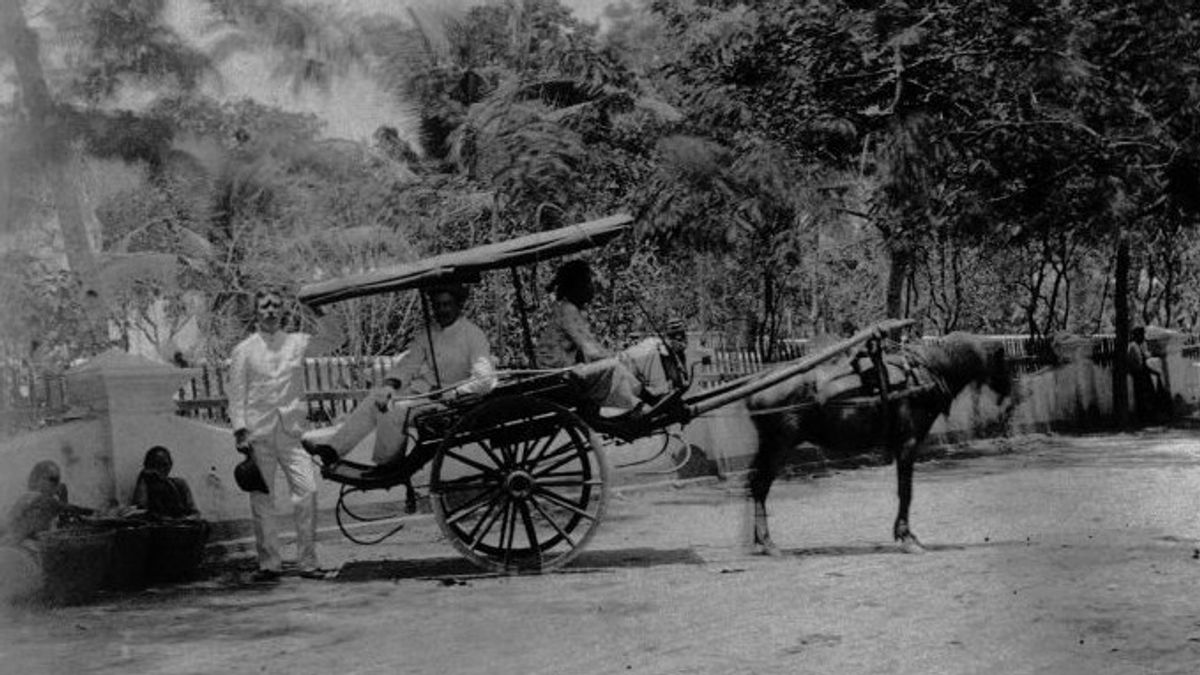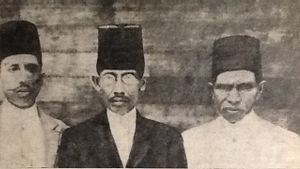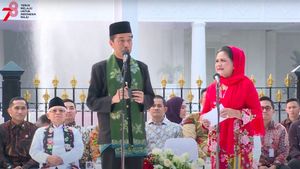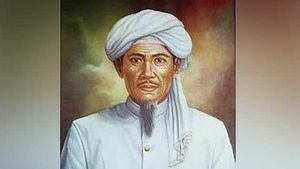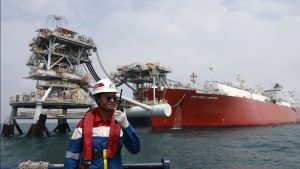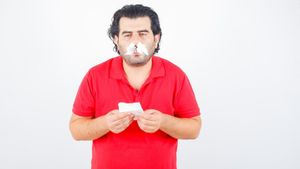JAKARTA - Batavia was once considered a paradise for connoisseurs of liquor (alcohol). Fans emerged from various circles. The Dutch, especially. From official classes to soldiers. Every day, the activity of drinking alcohol until drunk is perpetuated at all times.
Problems also arise. Drunk activities often disturb city order. This behavior made the Dutch leadership number bring the reckless horse carriage to increase. Therefore, accidents and destruction of public facilities were unavoidable.
The liquor business is not new in Batavia. Dutch trading airline, the VOC also supports it. The Company believes the durability of the Dutch in tropical countries can increase because of alcohol. It is also profitable in terms of tax revenue.
The Dutch and Chinese then flocked to perpetuate the alcohol business. They built a beer, gin, and arak factory. The initiative was taken because the alcohol business is believed to be quick to return the capital and fortunately it is piled up.
This narrative is evidenced by the increasing number of alcohol connoisseurs. Moreover, the drinking ritual has been transformed into an important teaching in each Batavian life charter. From birth to marriage. The drinking ritual can also be a sign of official promotion until retirement.
This habit continues to grow. In fact, the drinking habit that was initially perpetuated for parties began to celebrate other events. Funeral ceremony, for example. The ceremony, which is always celebrated' with tears of sadness, turns into fun with drinking rituals.
Whoever the family who is left behind is obliged to provide alcohol and snacks for their supporters. Malang cannot be denied. The recitation is a bad way to invite chaos. Because, mourners who come and are drunk often fight each other.
This condition made the Council of Churches concerned. However, there is no serious effort to end drinking habits.
The funeral ceremony must end by holding a proper banquet, usually parodied as a wedding reception at the funeral. In the Batavia era, the average person was not too long and the funeral was carried out alternately, so that the funeral ceremony changed from a sad event to a happy event.
The event was full of laughter and drinking even though it was being bullied. Archival records in 1658 shared that due to the fact that quite a lot of liquor was stuck at the funeral party, there were frequent acts of humiliation and row around the tomb. Therefore, a ban on consuming liquor during the burial ceremony, "said historian Hendrik Niemeijer in the book Batavia: The Colonial Society of the XVII Century (2012).
The activity of getting drunk actually spread everywhere. This activity makes you often do detrimental activities. Mainly driving the vehicle recklessly on the streets of Batavia.
Vehicles at that time were still limited to what they are today. Vehicles that became the prima donna during the Company's reign were still in the form of horse-drawn carriages. The vehicle is also known for its various names such as sado, wagon, ebro, andong.
The influence of alcohol makes you drive fast and reckless. The incident lasts almost every week. They endanger the lives of many people. A reckless horse train hits anything in front of it. Residents or buildings.
All Batavian residents were disturbed. They asked Kompeni to immediately take action against their relatives. This is because the loss is not only to residents who are hit, but also to the fact that bridges and roads are often damaged because they are reckless.
The Company also listened to the complaints of the residents of Batavia. Anyone who carries a reckless horse carriage will be subject to a fine of a certain amount. The recitation is to limit the bad behavior of the deceased.
In addition to the above rules needed in economic activities, the questions on the road also need to be put in order. Because accidents often occur, especially at night when people are drunk riding a train, there is a ban on riding an open train with 1-2 passengers inside the city wall area on December 30, 1704.
Meanwhile, the damage to bridges and roads due to reckless riding of trains has increased the cost of road maintenance. Therefore, fines for those who violate are quite large, namely 25 riksdalders. It is certain that fasting on the road between fellow trains was prohibited on March 13, 1778. explained the historian, Mona Lohanda in the book History of the Magnification of Batavia (2007).
VOIR éGALEMENT:
The English, Chinese, Japanese, Arabic, and French versions are automatically generated by the AI. So there may still be inaccuracies in translating, please always see Indonesian as our main language. (system supported by DigitalSiber.id)
